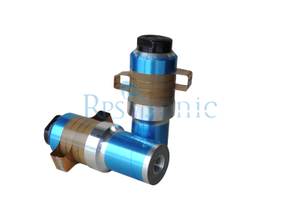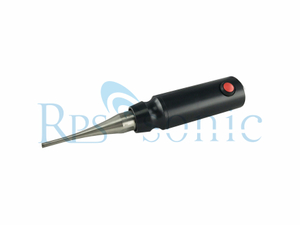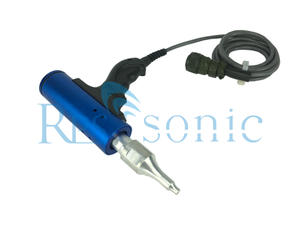Can ABS plastic be welded by ultrasonic?
ABS chemical name: acrylonitrile-butadiene-styrene copolymer
English name: Acrylonitrile Butadiene Styrene (ABS)
Uses: auto parts (dashboard, tool hatch, wheel cover, mirror box, etc.), radio case, telephone handle, high-strength tools (vacuum cleaner, hair dryer, blender, lawn mower, etc.), typewriter keyboard, Recreational vehicles such as golf carts and jet skis
Specific gravity: 1.05 g / cm 3
Combustion identification method: continuous combustion, blue-yellow yellow flame, black smoke, light golden sedge
Solvent test: cyclohexanone can be softened, aromatic solvent has no effect
Drying conditions: 80-90 ° C for 2 hours
Molding shrinkage: 0.4-0.7%
Mold temperature: 25-70 ° C (mold temperature will affect the smoothness of plastic parts, lower temperature will result in lower finish)
Melting temperature: 210-280 ° C (recommended temperature: 245 ° C)
Molding temperature: 200-240 ° C
Injection speed: medium and high speed
Injection pressure: 500- 0bar
Features:
1. Good comprehensive performance, high impact strength, chemical stability and good electrical performance.
2, and 372 plexiglass has good weldability, made into two-color plastic parts, and can be chrome-plated and painted.
3, high impact, high heat, flame retardant, enhanced, transparent and so on.
4, the fluidity is a little worse than HIPS, better than PMMA, PC, etc., and good flexibility.
5, use: suitable for the production of general mechanical parts, wear-resistant parts, transmission parts and telecommunications parts.
6. Like PVC (polyvinyl chloride), whitening will occur at the bend.
Molding characteristics:
1. Amorphous material, medium fluidity, large moisture absorption, must be fully dry, the surface of the plastic parts requiring gloss must be preheated for a long time to dry 80-90 degrees, 3 hours.
2. It is advisable to take high material temperature and high mold temperature, but the material temperature is too high to be easily decomposed (decomposition temperature is >270 degrees). For high precision plastic parts, the mold temperature should be 50-60 degrees, high gloss. For thermoplastic parts, the mold temperature should be 60-80 degrees.
3. If you need to solve the water trap, you need to improve the fluidity of the material, adopt high material temperature, high mold temperature, or change the water level.
4. If the heat-resistant or flame-retardant material is formed, the plastic decomposition product will remain on the surface of the mold after 3-7 days of production, which will cause the surface of the mold to be bright. It is necessary to clean the mold in time, and the surface of the mold needs to increase the exhaust position.
ABS resin is a high-yield, widely used polymer that combines the properties of PS, SAN, and BS organically, and combines the toughness, hardness, and phase balance of excellent mechanical properties. ABS is a terpolymer of acrylonitrile, butadiene and styrene, A represents acrylonitrile, B represents butadiene, and S represents styrene.
ABS engineering plastics are generally opaque, the appearance is light ivory, non-toxic, tasteless, with tough, hard, rigid characteristics, slow burning, yellow flame, black smoke, softened, burnt, and special after burning The smell of cinnamon, but no melting dripping phenomenon.
ABS engineering plastics have excellent comprehensive properties, good impact strength, dimensional stability, electrical properties, wear resistance, chemical resistance, dyeability, molding processing and mechanical processing. ABS resins are resistant to water, inorganic salts, alkalis and acids, are insoluble in most alcohols and hydrocarbon solvents, and are readily soluble in aldehydes, ketones, esters and certain chlorinated hydrocarbons.
Disadvantages of ABS engineering plastics: low heat distortion temperature, flammable, and poor weather resistance.







